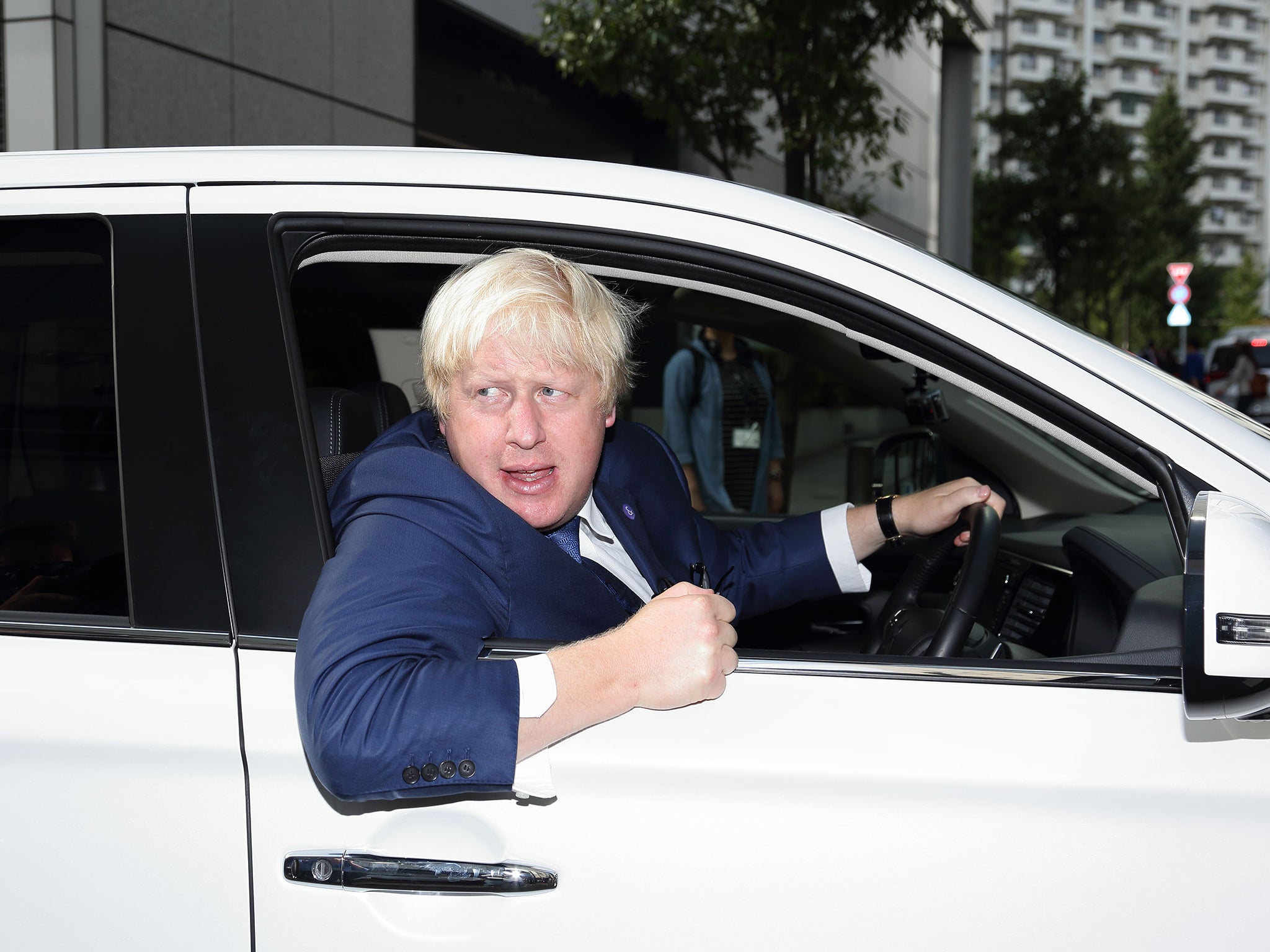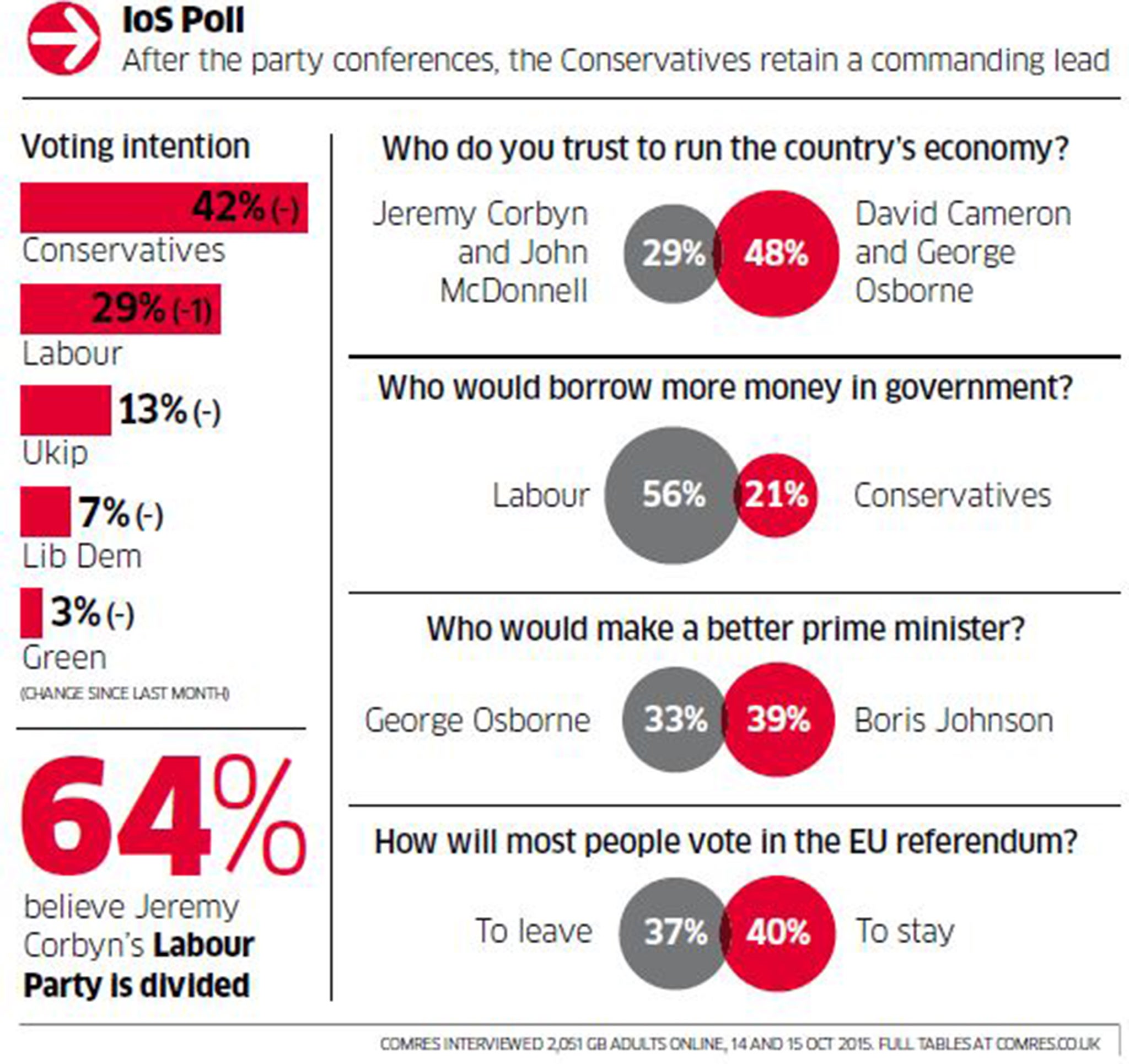Boris Johnson preferred by voters as successor to David Cameron
Poll finds electorate unmoved by party conferences, against tax credit cuts, and critical of Cameron’s scaremongering

Your support helps us to tell the story
From reproductive rights to climate change to Big Tech, The Independent is on the ground when the story is developing. Whether it's investigating the financials of Elon Musk's pro-Trump PAC or producing our latest documentary, 'The A Word', which shines a light on the American women fighting for reproductive rights, we know how important it is to parse out the facts from the messaging.
At such a critical moment in US history, we need reporters on the ground. Your donation allows us to keep sending journalists to speak to both sides of the story.
The Independent is trusted by Americans across the entire political spectrum. And unlike many other quality news outlets, we choose not to lock Americans out of our reporting and analysis with paywalls. We believe quality journalism should be available to everyone, paid for by those who can afford it.
Your support makes all the difference.Voters prefer Boris Johnson to George Osborne as the successor to David Cameron, according to The Independent on Sunday’s opinion poll carried out by ComRes. The Mayor of London would make a better prime minister than the Chancellor, say 39 per cent, as against 33 per cent who say Mr Osborne would be better. The rest say they don’t know.

But Conservative voters prefer Mr Osborne by 48 per cent to 34 per cent, which suggests he has the advantage among party members – who will have the final say in choosing the next Conservative leader. Much of Mr Johnson’s support comes from Labour voters, who prefer him by 44 per cent to 27 per cent, suggesting he would expand the Tories’ support.
As Mr Johnson ponders his position on the European referendum after giving a notably Eurosceptic speech to the Conservative Party conference this month, the poll found that the result could be close. By 40 per cent to 37 per cent, voters expect the outcome to be for Britain to stay in the EU.
The poll also found that the party-conference season had little effect on voters. The Conservatives retain a commanding lead of 13 points, with no party’s level of support significantly changed from last month.
48%
Tory voters preferred George Osborne, with Mr Johnson receiving 34%
Labour is seen as divided and not trustworthy on the economy but people agree with the party in opposing austerity and cuts to tax credits for people in work.
After Jeremy Corbyn’s difficult start as Labour leader, 64 per cent of the public think the Labour Party is divided; only 16 per cent said it was united. The Conservative Party is seen as united by 43 per cent, and as divided by 35 per cent.
The Conservatives enjoy a 19-point advantage on being trusted to run the economy. By 45 per cent to 33 per cent voters agreed that “a Labour government would lead to economic chaos”. But by 40 per cent to 32 per cent, the public agree that Labour is right to oppose austerity, and more disagree (43 per cent) than agree (34 per cent) that “cutting tax credits for people who are in work is necessary to get the public finances in order”.
Mr Corbyn is seen as a threat to national security by 38 per cent, up 3 points from last month, which suggests the Prime Minister’s attack on him in his conference speech was successful. However, by 41 per cent to 30 per cent voters thought that David Cameron was not “justified in saying that Jeremy Corbyn is a terrorist sympathiser”.
Public opinion remains opposed to the HS2 high-speed rail link, promoted by Lord Adonis, the Labour peer appointed this month by Mr Osborne to head the infrastructure commission. The poll tested the statement: “The planned high-speed rail link from London to Birmingham and the north would be expensive but worth it”; 34 per cent agreed (up 2 points since 2011), 39 per cent disagreed (down 1 point).
Join our commenting forum
Join thought-provoking conversations, follow other Independent readers and see their replies
Comments